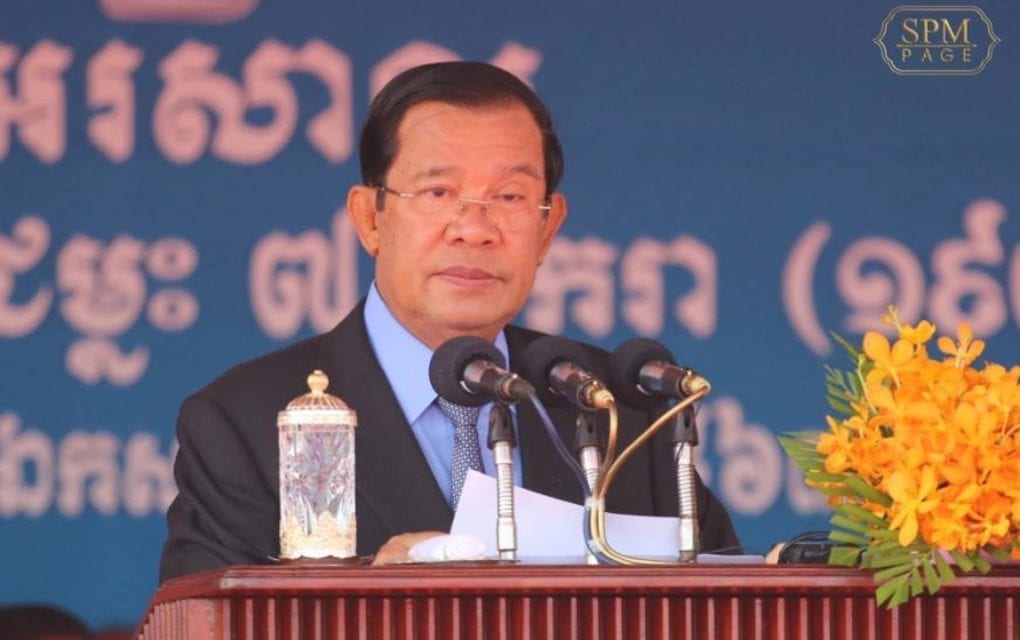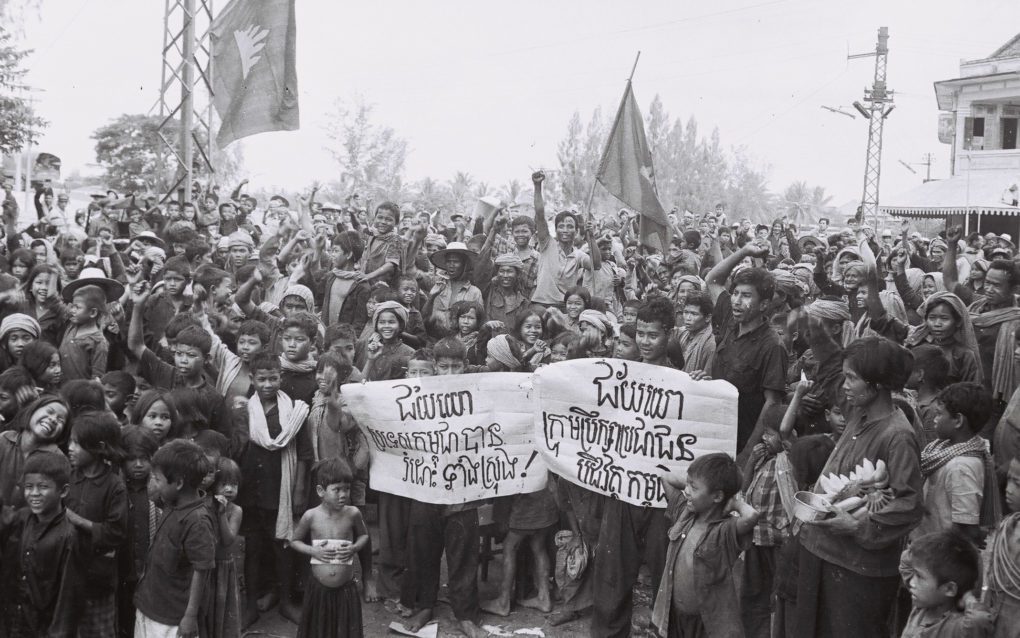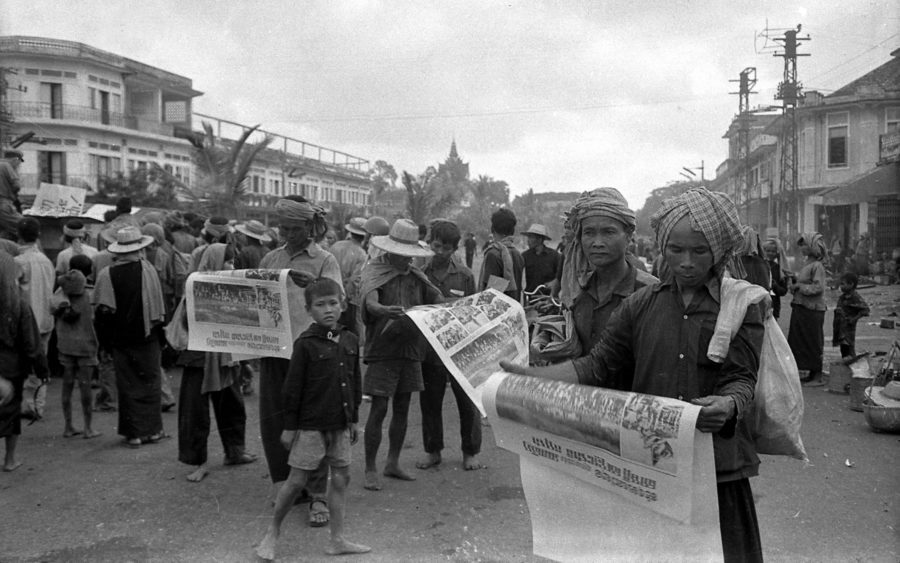For a national birthday, this year’s passing of January 7 is likely to be much quieter than most.
Past commemorations of the politically divisive “Victory Over Genocide Day” have involved rallies centered on speeches from Prime Minister Hun Sen, who has long stressed the date as the anniversary of the country’s 1979 liberation from the grip of the Khmer Rouge — with the help of an occupying Vietnamese military force of about 100,000 troops who stayed for the next decade. However, as Hun Sen travels today to Myanmar for a controversial diplomatic mission, the government has not planned any public celebration of the date in Cambodia.
There was no rally for 2021 either, as the country took precautions to ward off a pandemic that would finally crash in the so-called February 20 event. This year, government spokesperson Sok Eysan said Covid-19 concerns are again the main reason for bypassing any rally. Though he acknowledged the government had announced on December 20 a definitive end to the outbreak, Eysan said the more-infectious Omicron variant had given officials cause to reconsider holding a gathering of “tens of thousands” of people for a January 7 event.
“There is nothing to do with other issues besides keeping safety for people’s health,” Eysan said, adding that the date will be commemorated with banners displayed across the country. “It has not been abandoned because it is a reality of history that the people nationwide cannot forget.”
Though Omicron represents a potential challenge to the country’s health care system, it has not prevented officials from speaking at or otherwise sanctioning various commemorations in the past few weeks. And besides any public health aspects, some policy analysts see the lack of a public event as part of a wider shift in the country’s political tone.
Apart from sidestepping the political baggage of the date itself — which has been rejected and branded by the opposition as an overly pro-Vietnamese gesture since the earliest days of the current Cambodian state — the more muted commemoration also comes as at least one key CPP leader has advised party candidates for the upcoming elections to diversify their campaigning away from Khmer Rouge issues. In a country with a median age of 25, that definitional period of history holds a shrinking resonance.
Ro Vannak, an analyst focused on foreign policy and a co-founder of the Cambodian Institute for Democracy, said the prime minister’s trip to Myanmar could send a domestic message as well.
“Firstly, he can attract the Khmer nationalists who are not satisfied with Vietnam’s influence to support him, because he is likely not in Vietnam’s influence as he’s accused [by the opposition],” Vannak said. “Secondly, he might prove that he is ambitious and prudent to leverage the country’s image as chairman of Asean to deal with regional issues such as Myanmar’s political crisis.”
Though Cambodia still maintains officially friendly ties with Vietnam, Vannak said national leaders have for years hedged against their neighbor’s traditional influence with tighter alliances with outside powers, most notably China.
As the cohort of CPP leaders who worked closely with the Vietnamese occupation now look to cement their legacy for generations far removed from the Khmer Rouge era, their emphasis may shift closer to the present — such as in Hun Sen’s urging last week for the official state calendar to recognize December 29 for the role of his “win-win policy” in negotiating an end to Cambodia’s civil war by the end of 1998.
“[The] CPP, especially under Hun Sen leadership, is likely to claim the credibility to be a liberator, and now a peace builder and keeper,” Vannak said. “It’s one arrow killing two birds.”
A chance to reset the narrative could also provide a politically clean slate for Hun Sen’s eventual successor.


Heralded by the ruling CPP as the second birthday of the country as it left the dark rule of the Khmer Rouge, yet disputed by the banished opposition CNRP as the starting point for Vietnam’s 10-year occupation of Cambodia, the political narratives surrounding January 7 have long represented stark divides in political society.
It was on January 7, 1979, that the People’s Army of Vietnam entered Phnom Penh, just about a week after crossing into Cambodia with a much smaller force of Khmer Rouge defectors. Those defectors included many of today’s top CPP leaders, including Hun Sen and Heng Samrin.
The day after taking the capital, the Vietnamese army oversaw the creation of the People’s Republic of Kampuchea (PRK), creating a local government under the occupation. Before the gradual ascension of Hun Sen, the PRK was first led by Samrin, who was chief of state, with Pen Sovan serving as prime minister and general secretary of the Kampuchean People’s Revolutionary Party.
Later in 1979, the Cambodia-Vietnam Friendship Monument was raised in Phnom Penh’s park plaza outside Wat Botum. And less than two years after the occupation began, the outspoken Sovan was removed from his post and imprisoned for a decade in Hanoi after clashing with an influential Vietnamese adviser.
The mistrust of Vietnamese intentions in 1979 didn’t end with the occupation.
“What I have observed is that the 7th of January has become meaningless,” said political analyst Lao Mong Hay. “In fact, that was the day that the Vietnamese soldiers installed a new regime after invading Cambodia.”
He’s far from alone in holding that view of the occasion.
The narrative of January 7, known in Khmer as prampi makara, as a date of liberation was rejected by the major non-CPP parties in some of the earliest days of the Royal Government of Cambodia, which eventually succeeded the PRK in 1993 through the U.N. intervention. Those factions that had opposed or actively resisted Vietnamese occupation, such as Funcinpec and what was by then the Buddhist Liberal Democratic Party, recognized different dates marking the end of Khmer Rouge rule.
In 1993, the government stopped the official recognition of the date as part of the national conciliation. However, by 1996 and reportedly at the behest of Hun Sen, the government resumed its commemoration of January 7 as the chosen date of liberation. That remained the case throughout the years, even as opposition leaders who eventually formed the CNRP took on the role of opposing the date — in large part as an outgrowth of anti-Vietnamese sentiment still common among the public.
Even if Cambodia’s modern relationship with its eastern neighbor has been eclipsed by China, the two Southeast Asian countries remain closely linked. Le Hong Hiep, a Vietnamese academic fellow at the ISEAS-Yusof Ishak Institute in Singapore, pointed out that President Nguyen Xuan Phuc made an official visit to Cambodia in late December. And according to the National Bank of Cambodia, Vietnam is the country’s third-largest foreign investor, as well as the largest investor from the Asean bloc.
“My view is that Vietnam is important to Cambodia and Cambodia is important to Vietnam,” Hiep said. “The two countries consider each other as an important partner that they need to pay attention to.”
The two countries’ shared history can be both an asset and a liability to partnership, Hiep said, but the CPP’s political consolidation has helped emphasize the positives of Cambodia’s link to Vietnam. Though it’s uncertain how the next generation of Cambodian leaders will view the relationship, for now, at least, the story of January 7 is officially a positive one.
“I think since Hun Sen crushed the opposition, the historical issues are less toxic to the relationship, at least so far,” Hiep said. “At the same time, I think the CPP government, they are veterans of the revolution, the struggle against the Khmer Rouge, and I think they still have the appreciation for Vietnam’s role in bringing peace and stability to Cambodia.”
“As long as Hun Sen is still in power, I think Vietnam still has some means to work with Cambodia to maintain a stable relationship,” he added.
Additional reporting by Mech Dara












